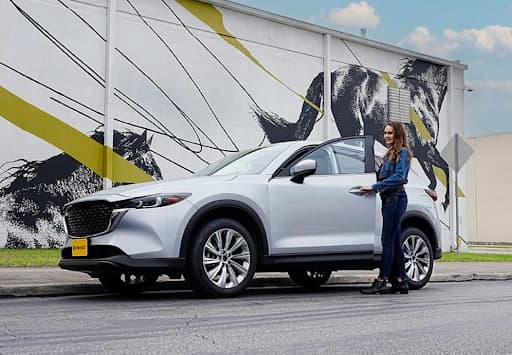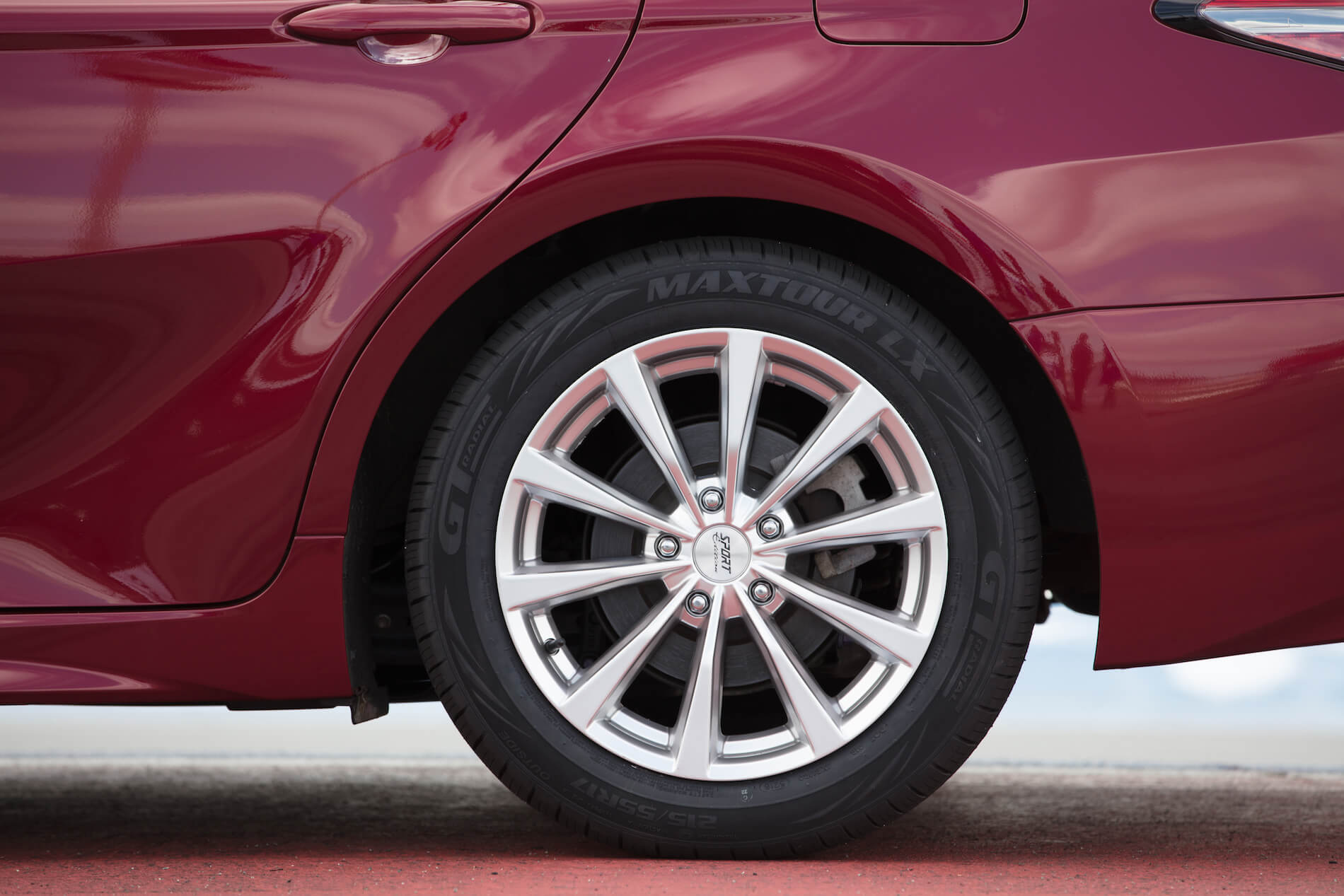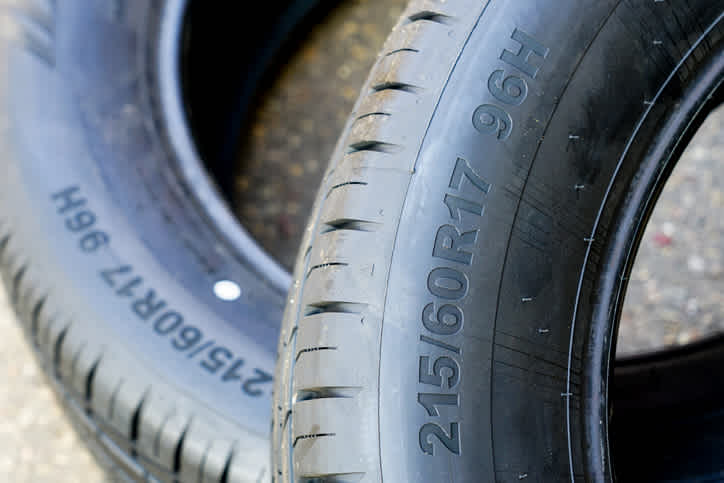Compre
Budget vs. Premium Tires: Which is Right for You?

Free shipping
Best price guarantee
SimpleCrew exclusive savings
0% financing options
Tire replacement coverage
24/7 roadside assistance
Easy returns
Compre

When it comes to purchasing new tires for your vehicle, one of the most important decisions you'll face is whether to opt for budget or premium tires. While both types of tires are designed to provide a safe and comfortable ride, there are significant differences between them that can impact your driving experience, safety, and overall cost of ownership.
Understanding these differences is crucial to making an informed decision that aligns with your specific needs and priorities. From performance and durability to upfront costs and long-term value, there are several factors to consider when weighing the pros and cons of budget and premium tires.
In this article, we'll explore the key differences between budget and premium tires, helping you determine which option is the best fit for your vehicle, driving habits, and budget. By the end, you'll have a clearer understanding of the benefits and drawbacks of each type of tire, empowering you to make a confident and well-informed purchasing decision.

Budget tires are designed to provide a safe and comfortable ride at an affordable price point, making them an attractive option for cost-conscious consumers. These tires typically use basic rubber compounds and simpler tread designs, which can result in a shorter lifespan and reduced performance compared to premium tires. However, budget tires still meet all safety standards and can be a suitable choice for drivers who primarily use their vehicles for short trips around town or in mild weather conditions.
While budget tires may not offer the same level of advanced features and technology as premium tires, they can still provide reliable traction and handling in most driving situations. It's important to note that the quality and performance of budget tires can vary widely depending on the brand and model, so it's essential to do your research and read reviews from trusted sources like SimpleTire before making a purchase.
Premium tires are engineered using cutting-edge technology and high-quality materials to deliver optimal performance in a wide range of driving conditions. These tires often feature advanced tread designs, specialized rubber compounds, and reinforced internal structures that enhance handling, braking, and overall durability.
One of the key benefits of premium tires is their ability to provide superior traction and shorter stopping distances, especially in challenging weather conditions like heavy rain or snow. This enhanced performance can give drivers an extra margin of safety and peace of mind, particularly when navigating slippery or unpredictable road surfaces.
In addition to their advanced safety features, premium tires are also designed to improve fuel efficiency and provide a quieter, more comfortable ride. The use of high-quality materials and precision engineering techniques helps to reduce rolling resistance and minimize road noise, resulting in a more enjoyable driving experience.
While premium tires come with a higher upfront cost compared to budget options, their longer lifespan and superior performance can often make them a more cost-effective choice in the long run. By investing in a set of premium tires, you can potentially save money on fuel costs and replacement tires while also enjoying the benefits of enhanced safety, handling, and overall driving satisfaction.
Consider how you typically use your vehicle to help determine the most suitable tire choice. For drivers who engage in frequent, short-distance travel within city limits, opting for budget tires can effectively meet everyday needs. These tires deliver satisfactory performance for urban driving, where speed limits and road conditions are generally consistent.
For those who spend substantial time on highways or drive vehicles designed for performance, premium tires offer distinct advantages. Engineered for stability and precision, they enhance the driving experience during long journeys or at elevated speeds. With advanced design elements, premium tires cater to drivers who seek enhanced performance and handling from their vehicles.
Safety remains a crucial factor when selecting tires, and premium options often provide enhanced security. Their advanced technology and design offer improved traction and braking, which prove beneficial in harsh weather conditions. This can be particularly reassuring for drivers who encounter frequent rain or icy roads.
Choosing premium tires can bring added confidence, knowing that your vehicle is equipped to handle unexpected driving challenges. These tires are crafted to maximize reliability and performance, ensuring a secure driving experience. This peace of mind is invaluable, allowing you to focus on the road ahead without concerns about tire capability.
While premium tires have a higher initial price, they can be economically advantageous over time. Their construction often results in a longer lifespan, which means fewer replacements and lower overall tire expenses. Additionally, the improved fuel efficiency of many premium tires can contribute to savings at the pump.
Budget-conscious consumers might consider options like the Lionhart LH-503, which offer a practical balance between cost and quality. These tires provide reasonable durability and performance, making them a viable choice for those seeking value without the premium price tag. By evaluating your budget alongside your driving expectations, you can identify tires that meet both financial and vehicular needs.

Begin by reviewing your vehicle’s owner's manual or checking the tire information placard, usually located on the door jamb or inside the fuel cap area. These sources specify the ideal tire size, load index, and speed rating for your car. Adhering to these guidelines ensures compatibility and maintains the vehicle’s designed performance dynamics.
Choosing tires that match these parameters helps avoid issues that can arise from incorrect tire usage, ensuring a ride that meets safety standards and manufacturer warranties. This careful selection supports the intended driving experience and vehicle balance.
Assess your usual driving conditions to pinpoint the tire features you need. Consider the weather patterns in your region—such as rain, snow, or dry heat—and how they affect road conditions. Your regular driving routes, whether city streets or rugged paths, also determine the tire’s required durability and grip.
Reflect on your vehicle’s role in your daily life. Whether your focus is on efficiency and comfort for commuting or performance for spirited drives, understanding these needs will help you select appropriate tires. This ensures that your choice aligns with both your lifestyle and vehicle demands.
Once you understand your tire requirements, explore various budget and premium models within your designated size. Evaluate factors like tread design, longevity, and customer ratings to see how they perform in different scenarios. This analysis helps identify which tire type fits both your driving style and financial plan.
Gathering insights from user reviews and tire specialists can offer additional clarity on each tire's strengths. Consulting these sources provides a well-rounded view, enabling you to make a confident, informed choice tailored to your specific driving conditions and expectations.
When deciding on the best tire option, it's essential to balance initial expenses with potential future benefits. Premium tires may require a more significant financial outlay upfront, yet they often offer durability and advanced features that can enhance driving satisfaction over time. Conversely, budget tires provide a cost-effective solution initially, making them attractive for those with immediate financial constraints or shorter-term vehicle plans.
It's crucial to align your tire choice with personal priorities such as reliability, handling, and financial considerations. For drivers who navigate diverse or challenging road conditions, prioritizing safety and performance is key. Meanwhile, those with a tighter budget should consider the overall expenses, including how frequently budget tires might need replacement and their impact on fuel consumption.
Ultimately, the decision should reflect your driving habits and financial goals. Consider how each tire option matches your expectations—whether it's the comprehensive benefits of premium tires for enhanced driving confidence or the practicality of budget tires for everyday use. This thoughtful evaluation ensures your choice supports both your current needs and future aspirations.
Choosing between budget and premium tires ultimately depends on your unique driving needs, preferences, and financial situation. By carefully considering the factors outlined in this article, you can make an informed decision that balances performance, safety, and cost-effectiveness. When you're ready to find the perfect tires for your vehicle, shop for tires online with us and discover the best deals to keep you rolling with confidence.
Search By